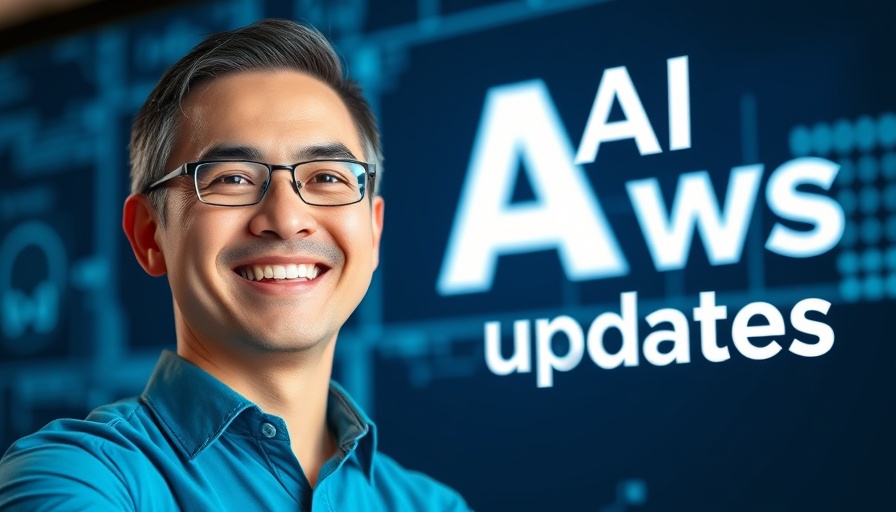
The Race for AI Dominance: A World of Competition
In the rapidly evolving landscape of artificial intelligence, it's clear that major tech giants are bracing for a fierce competition. Meta, Amazon, Google, and OpenAI are all vying for a significant stake in the AI pie, highlighting the implications of technological advances for users, businesses, and society. As these companies introduce new AI models and applications, understanding the landscape becomes crucial, particularly for business owners and entrepreneurs eager to integrate AI into their operations.
In 'Meta goes after ChatGPT, OpenAI going after Google and more AI News', the discussion dives into the competitive landscape of leading technology companies striving for AI dominance, and we’re breaking down its key insights while adding our own perspective.
Meta's Ambitious AI Plans
On the heels of launching its new Meta AI app powered by Llama 4, Meta reflects an aggressive strategy to capture ChatGPT's user base. With a focus on providing personalized experiences through features like voice interactions and integration with smart devices, the company aims to funnel its nearly 4 billion users into this platform. However, the absence of real-time web information for users may hinder its initial uptake compared to competitors.
Amazon's Innovative AI Model: Nova Premiere
Amazon has also entered the fray with its Nova Premiere model. Designed specifically for enterprise applications, this AI model supports multimodal inputs across over 200 languages. With features like model distillation enabling smaller, more efficient models, Amazon is positioning itself as a provider of sustainable and flexible AI solutions. This strategic shift indicates a significant commitment to meeting the demanding needs of businesses looking to harness AI.
Google's Expanded AI Features
Not to be outdone, Google has expanded its offerings by making AI Mode in Search Lab publicly accessible, enhancing the user experience with personalized and conversational search capabilities. New features allow users to seamlessly shop from local businesses while also providing a cohesive research experience. These updates raise the stakes for companies wanting to capture user attention in an increasingly crowded digital marketplace.
Duolingo's Controversial Shift Toward AI
In a controversial move, Duolingo has replaced contract workers with AI, a decision that reflects a broader trend in tech companies seeking to leverage automation for efficiency. While this change has posed questions about job security, it has also allowed Duolingo to significantly increase its course offerings. This balance highlights the dual role of AI as a tool for growth while posing ethical challenges regarding workforce displacement.
The Implications of AI in Politics
Even the political realm is not spared from the disruption caused by AI functionalities, especially highlighted by U.S. President Donald Trump’s use of an AI-generated image of himself as the Pope. This incident underscores the potential for AI-generated content to provoke controversy, especially as it intersects with sensitive social and cultural contexts.
Looking Ahead: A Future of AI Integration
As companies like Apple engage in talks to integrate Google's Gemini AI into their ecosystem, it is essential for businesses and individuals to contemplate the implications of these advancements. With the landscape of AI constantly shifting and evolving, staying informed and adapting is vital for success.
The bear clawing through the tech jungle signifies that whether you're a business owner, student, or entrepreneur, understanding and leveraging AI is no longer optional—it's essential.
As the competition heats up, consider how you can harness these new AI capabilities within your own ventures. The future of business is intertwined with technological progress, making now the perfect time for education and engagement.
 Add Row
Add Row  Add
Add 




 Add Row
Add Row  Add
Add 

Write A Comment